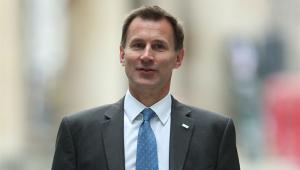28 January 2000
But if Tony Blair's pledge to increase UK health spending to the European average is to be redeemed, the Treasury's options in March's budget look quite a bit narrower.
That famous pledge by the prime minister on the Frost programme on January 16 (repeated in the Commons three days later) appeared to commit the government to far more than the 'relatively generous funding increases' awarded to the National Health Service in the first Comprehensive Spending Review (CSR) period, April 1999–March 2002.
The money is going to have to be found by not repaying debt and by not reducing the tax burden, says the IFS, an independent think-tank supported by the Economic and Social Research Council.
The prime ministerial commitment implies health spending would have to increase by between 6.7% and 9.4% each year in real terms from April 2000 until March 2005. These would be unprecedentedly large increments over a sustained period. Since 1948, the NHS long-run average is 3.4% a year. During the current CSR period, it is an historically high 4.7%.
The IFS notes that the gap between UK health spending and the European Union average is a lot less if private sector spending is taken into account. Anticipating agitated debate within the Treasury about the balance between the sectors, it says that faster growth in the private sector in the UK would of course make the prime minister's target easier to reach.
But 'increases in NHS funding of this magnitude would, assuming they led to individuals being more satisfied with the standard of service provided, make continued growth in the size of the private sector less likely to occur'.
Adding its influential voice to those calling for a 'radical rethink' of how the NHS is financed, the IFS notes that the public does seem prepared to spend 'even more' on health care. 'The main choice for policy-makers therefore is how much of that will be spent on the NHS through taxation and how much will be spent privately both on the NHS and on private institutions. The experience of the last 20 years suggests that, in the absence of real increases in spending greater than that seen over this Parliament, the future will see further growth in private sector health provision.'
But the political consequences of such a prediction – vehemently rejected by both the prime minister and Health Secretary Alan Milburn in the past few days – are not explored. That, says the IFS, is another one of the big questions the second CSR will have to address.
Health aside, New Labour's fourth Budget is being put together in happy circumstances, says the IFS. After gloom and doom in the early months of 1999, projections of economic growth and budget surplus in 1999/2000 have risen markedly. Unemployment has continued to fall, the £3.5bn reserves remain intact and, on present projections, the UK state's net debt is going to fall to 28% of GDP within five years. Project that forward another 25 years and public debt as it has been known since the end of the 17th century will disappear altogether.
The IFS sees no reason to dissent from the new consensus that the medium-run 'trend' rate of growth in the UK economy is of the order of 2.5% and that is unlikely to be threatened even by a hiccup in US economic prosperity; however it says the Treasury should err on the side of caution and stick with a growth projection of 2.25%.
But the IFS counsels Brown to caution. 'Fiscal policy should support monetary policy.'
This means, at best, keeping the balance of taxing and spending in the Budget neutral. Since the overall tax burden has been getting heavier, the chancellor might think about not cutting income tax, as promised.
If he ends up giving the economy a boost, the Bank of England, already worried by signs of inflation, may choose further to increase interest rates and risk nipping in the bud that rosy prospect of economic growth on which all these optimistic forecasts rest.
'Which option the chancellor chooses will depend on the relative importance placed on the size of the tax burden, the desire to support monetary policy, and demands for further increases in public spending.'
If Gordon Brown does cut tax in March, where would he find the money for health and education spending? To stop the tax burden rising as a share of GDP, some £3bn worth of tax cuts are implied for March.
If Brown cut tax by only £2bn, there would still be scope for increases in current spending of 2.5% a year in the three years from April 2001 (the last year of this CSR period and the first year of the next one overlap).
The IFS does not say whether that would be sufficient to pay for the promised boom in health. That question is meant to be decided in the Comprehensive Spending Review that is now convulsing Whitehall.
Its impact on, for example, local government, will depend on the results of the 'cross-cutting' review of council finance being led by Hilary Armstrong and – presumably – political and business reaction to the revaluation of business rates now being undertaken.
The IFS Green Budget: January 2000, from IFS, £35 email [email protected]
PFjan2000



















